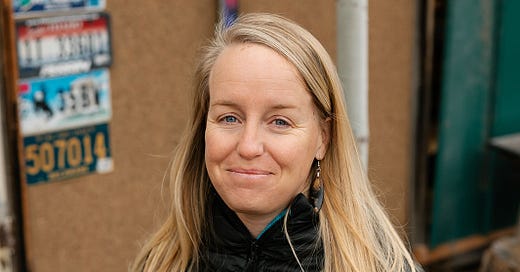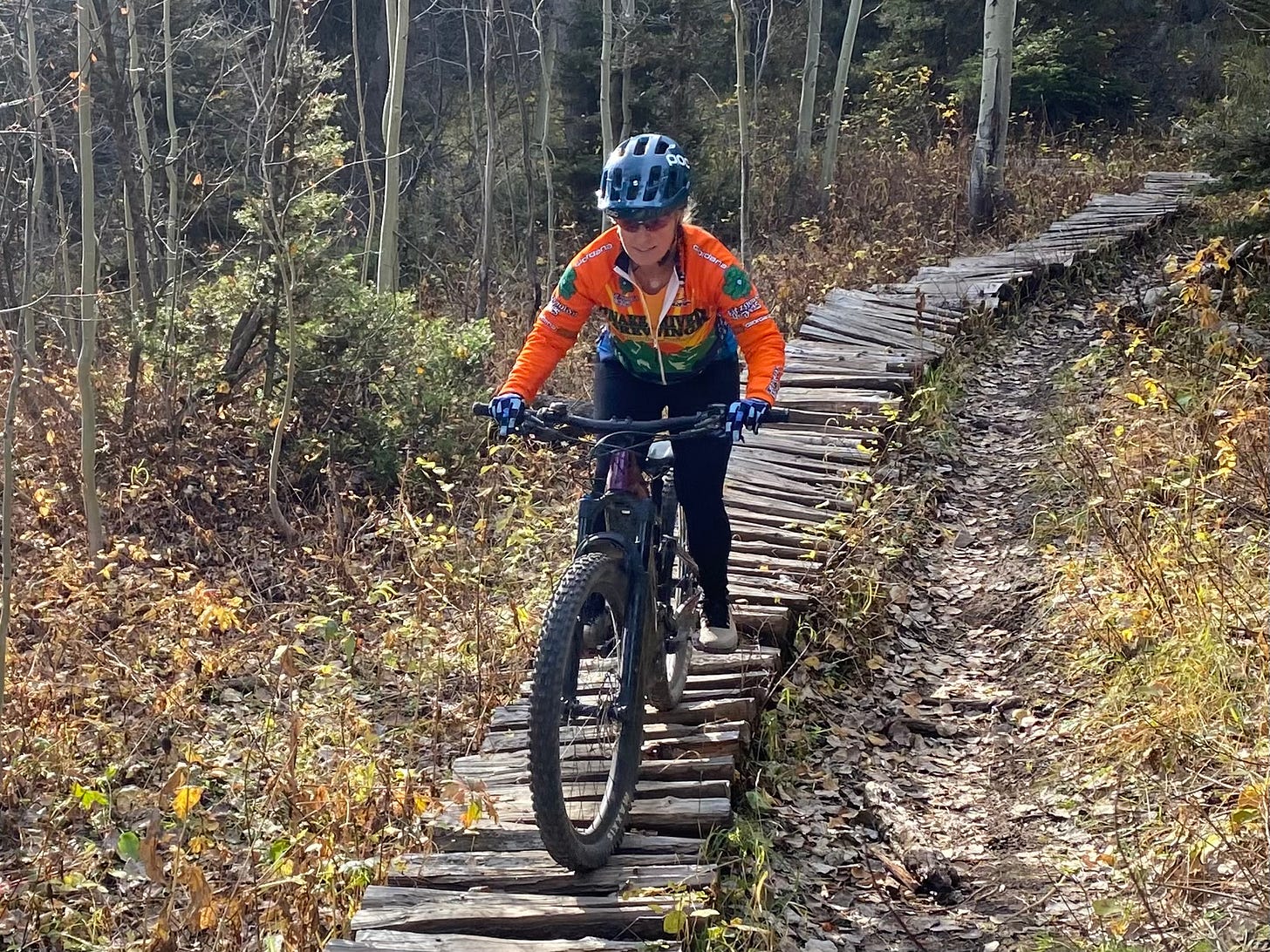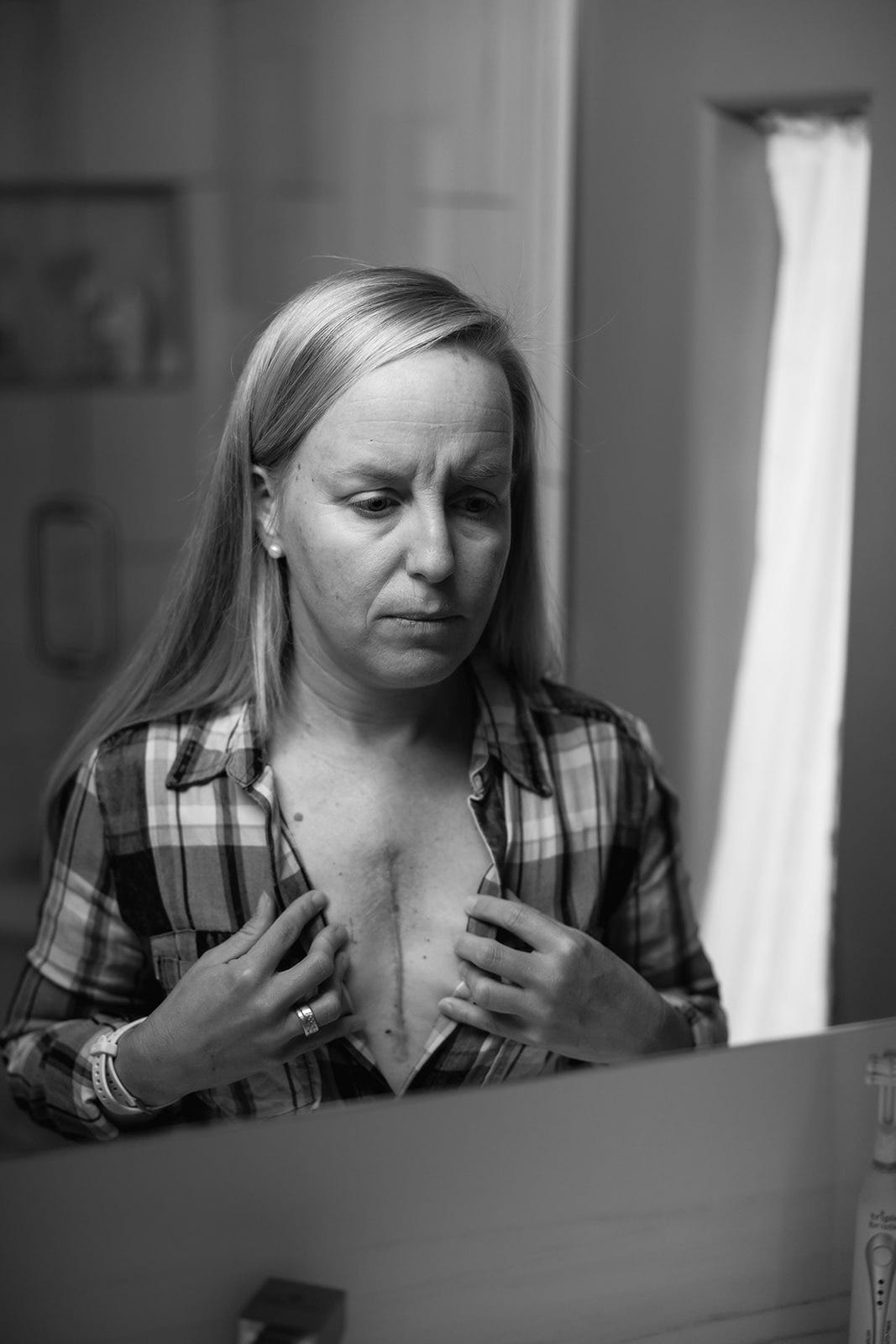Heart surgery was a portal to a new life
In a guest essay, Boots Knighton delves into what has changed since coming out of the operating room
Boots Knighton was never the same after human hands touched her heart.
She is the host of The Heart Chamber, a podcast featuring conversations about open heart surgery, and the writer of a Substack called Joyful Beat. She was diagnosed with a heart condition called myocardial bridging in 2020, when she was in her early 40s, and had open heart surgery in early 2021. The story is truly wild—listen to it here. Last year, she gave a TEDx talk about her experience, called “Practicing Dying While Living.”
When I first heard of Boots, née Suzanne, she was a guest on the podcast Heart to Heart with Anna. I learned she had her own podcast, and included it in a list of CHD podcasts that I published in June. But it was serendipity—or just the small size of the CHD community—that prompted Boots to reach out to me to be a guest on her show. After we recorded an episode, it seemed only natural to ask Boots to write a guest essay for this newsletter.
In this piece, Boots meditates on how heart surgery has opened up her emotions and made her rethink how she approaches life.
Three years have passed since my open-heart surgery. I no longer notice my scar on my chest. What I do notice is how different I am as a human.
My soul has changed, upgraded, evolved from having my heart physically touched by my surgeon and his team. As he described it, my heart took a nap for 45 minutes. In reality, it was stopped. I danced between the worlds of life and death. How could that not have changed me to the very core of who I am?
In June 2020, I went to the ER with all the symptoms of a heart attack: pain down my left arm, an elephant on my chest, nausea, sweating, breathlessness. The ER staff, as perplexed as I was, found no heart attack. At 42 years old, I was the fittest I had ever been. Within weeks, I was climbing Idaho’s tallest peak. Yet, I was battling symptoms all the way.
I begged my cardiologist for more studies to be done. That July, he ordered a CT scan of my coronary arteries. He said he was going to go looking for a whole bunch of things and that I better hope he didn’t find any of what could be found.
He found a dumpster fire.
I learned that I had three myocardial bridges, a type of congenital heart defect where the arteries go into the heart muscle. My cardiologist dismissed my symptoms as anxiety and told me to get a therapist. I had a therapist. He had his physician’s assistant deliver the diagnosis. At that point, I fired him.
Suddenly, I was my own advocate. I found support through a Facebook group, which sent me to a specialist hospital that identified the myocardial bridging as the cause of my symptoms. I scheduled my surgery, only to have it shut down by the pandemic. Then I found another surgeon hiding in plain sight within driving distance.
The five minutes before I was rolled into the operating room, knowing there was a chance I wouldn’t make it through the surgery, I had just enough time to do a life review. Meeting myself with the most honesty I have ever had the courage to express, I asked myself if I had any regrets. If I did, what was I going to do about those regrets should I get another shake at life?
I discovered two regrets. I hadn’t skied enough (even though I was a ski instructor, which made me giggle). Years later, I would realize that, while I was happy, I had not allowed myself to fully experience the joy of life. The second regret was that I had yet to write a book, a lifelong dream. Teaching had always come naturally to me, so writing books provided an outlet not only for helping others but also for processing my life. My life’s purpose had been wrapped up in others’ expectations as well as my own ego.
The doors to that operating room were like a portal to another dimension, one where life is in technicolor, and I am in the driver’s seat instead of just going along with the punches.
In the years since then, after many hours with my therapist and talking with fellow heart patients on my podcast, The Heart Chamber, I came to fully realize the depth of these two regrets. I figured since I made it to the other side of the dumpster fire, why not live life as wide open as possible, leaving no regret unturned? My therapist and I have been hard at work, excavating the corners of my life to allow complete healing. I never thought peace and resolution of what plagued me in the past could be made manifest, but it is happening everyday.
Now, I give little to no thought to others' expectations or approval, and I have found a healthy balance between what my soul wants and needs and my ego’s voice. I have little patience for anything superficial. If something or someone is lacking depth or perspective, I walk away. There’s no time to waste.
Any challenges that have come up are no longer dumpster fires. I’ve lived long enough now to know that the next challenge is a portal to the next evolution and an even brighter, joyful life. While I won’t ever get a day off from thinking about my heart, I am my own best advocate, and I am freer than ever to feel all the emotions that make life rich and meaningful.








